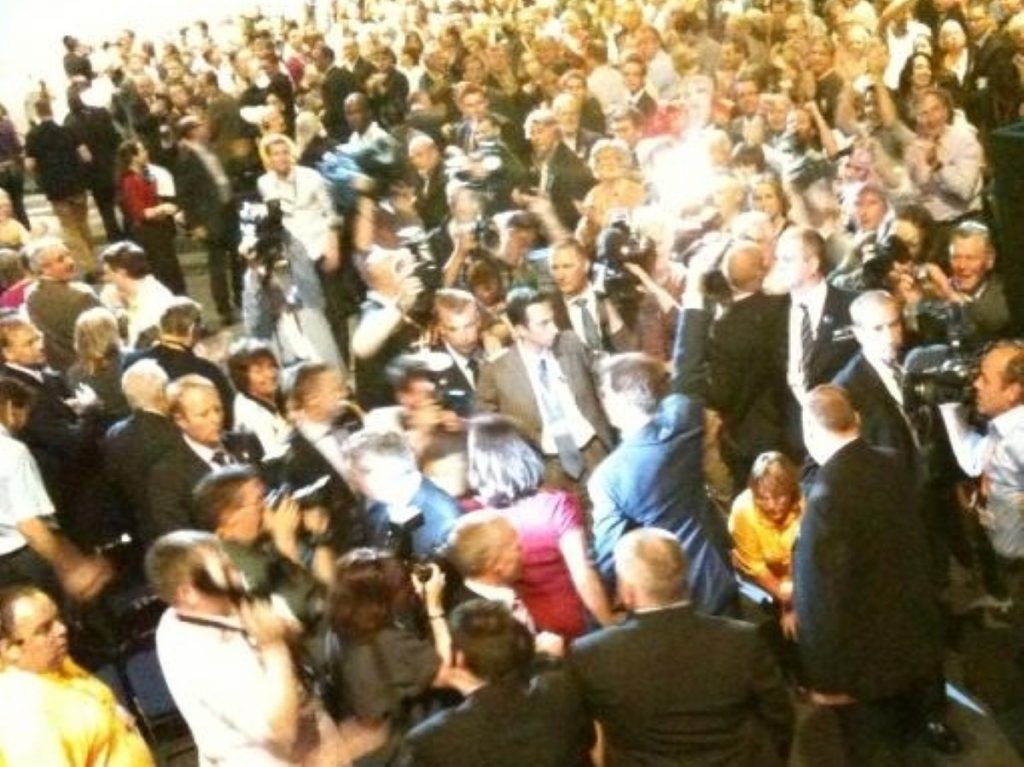Clegg faces four-way split as vote approaches
By Ian Dunt
Nick Clegg is facing the prospect of watching his party vote four ways over tuition fees this week, as he continues frantic efforts to get MPs onside.
At least 13 to 14 backbenchers will vote against the proposals on Thursday, including former leaders Charlie Kennedy and Sir Ming Campbell. Some, including possibly Mr Clegg, will abstain. The ministerial team, including Vince Cable, will support the measure. At least three MPs are demanding a postponement of the vote in order to free up time for more public debate.
Lib Dem MPs met for a parliamentary meeting this afternoon in the Commons as they tried to hammer out a workable position.


Mr Clegg tried to dress up the chaos as a symbol of the Liberal Democrat’s pluralist political culture this week. Former leader Paddy Ashdown adopted a similar line of argument yesterday, insisting to interviewers that attacks on the Lib Dems reflected a failure to understand ‘new politics’.
The chances of a unified vote, with all MPs abstaining, disintegrated yesterday when it emerged that two junior ministers, Norman Baker and Lynn Featherstone, were considering voting against the measures.
“The government’s proposals are controversial,” Mr Clegg wrote in an article for the Financial Times.
“But I am convinced that they are the fairest way to keep Britain’s higher education sector strong, even as we cut the deficit that endangers our economy.”
He added: “The uncomfortable truth is that the growth in the university population in recent years has done little or nothing to boost social mobility.
“The student population has become more middle-class dominated. The coalition is intent on making our universities more effective engines of social mobility.”
Meanwhile, David Davis became the first Tory to confirm he would vote against the plans, although he admitted he constituted a “rebellion of one”.
That calculation may not be quite accurate. Rumours around Westminster suggest that a handful of Tory MPs are considering rebelling over the issue, but they may abstain if they find Labour’s approach too party political.
The former leadership contender and shadow home secretary spoke to a variety of media outlets yesterday expressing his concerns about the effect on social mobility a rise in fees would entail.
“I simply don’t agree that university should be this expensive,” he told the Daily Telegraph.
“I’m concerned about the effect this would have on social mobility and the huge level of debt we are encouraging young people to take on.”
There were also manoeuvres taking place at a grassroots level, as members of the Lib Dem policy committee demanded the ability to make their ministerial team stick to the party, rather than government, line.
Many members are concerned that the actions being taken at ministerial level will have long-lasting effects on the party’s image.
The strength of the student movement mobilising against the Liberals suggests that the analysis holds true.
The latest stunt by student groups saw them invade the Tate Britain gallery last night, just as the televised Turner prize ceremony was underway.
Winner Susan Philipsz’s speech was all-but drowned out by the chants of the several hundred activists who took over the building, although the artist was highly sympathetic during interview afterwards.
“I was a student protesting,” she said.
“I think they have every right to protest. I don’t think they should cut the grants. My heart goes out to them.”
Tate director Sir Nicholas Serota was similarly accommodating.
“Art should continue to be accessible to all no matter where you live or indeed whatever your wealth,” he said.
Commander Bob Broadhurst, head of the Met’s public order branch, again warned parents against allowing their children to attend this week’s protests.
“Violence and disorder is often a result of a minority who are determined to cause trouble,” he said.
“Police officers will endeavour to assist young and vulnerable people as much as they can if violence breaks out during a protest, but there is only so much they can do once they are in a crowd of thousands.”
Despite the range of forces amassed against the rise in tuition fees, the government is almost certain to pass the bill on Thursday.
It would take over 40 Lib Dem rebels to vote with Labour for the bill to fail.









